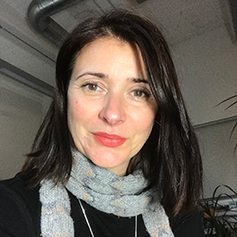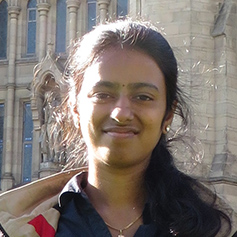
Our culture
We are motivated by a strong and shared commitment to ensure a Department that is both inclusive and that provides all staff and students the opportunities to make the most of their potential.
We strive to create a diverse and inclusive environment, where students and staff can study together and work as part of a global research community. I have a strong personal commitment to ensure the very best use of the talent that we have at all levels, in both staff and students.
Professor Stefan Söldner-Rembold / Head of Physics and Astronomy, The University of Manchester
As an example of our equality, diversity and inclusion work in gender, the proportion of female students joining our Department, both at undergraduate and postgraduate level, continues to increase each year and we are committed to ensuring equality of opportunity for female physicists. We are supportive of staff and students with caring responsibilities.
We are proud to hold both Athena SWAN Silver Award and Project JUNO Champion status, testimony to our successes and continued commitment in this area. These awards recognise inclusivity and success for all.
Our equality, diversity and inclusion activities
Find out about some of the initiatives we commit to within the Department to ensure we provide an environment that everyone can thrive in.
Equality, Diversity and Inclusion Commitee
The strength of any department is its people. The Department of Physics and Astronomy values the diversity of its staff and students. Our Equality, Diversity and Inclusion (EDI) Committee has staff and student representatives from across the Department and beyond, and works to ensure that diversity and inclusion are at the heart of all departmental operations and decisions.
Some of our achievements:
- The percentage of undergraduate female students admitted to the degree has steadily risen. This coincides with a Departmental initiative to increase the visibility of women at undergraduate interviews/open days by specifically pairing female interviewers with female candidates.
- We took the opportunity to name our new lecture theatre after a prominent female physicist, Dame Jocelyn Bell-Burnell, to address the all-male names of our existing lecture theatres.
- We led the University by being one of the first buildings to have universal toilets in place (Schuster building). These are now being adopted across the campus as part of a wider project.
- We have held an annual Women in Physics event for a number of years and in 2018 we relaunched this as a “Gender Diversity Day” that is inclusive of all underrepresented genders in Physics.
- We are one of the first Departments to deliver Active Bystander training to our staff and are committed to training staff each year for the next three years (2020-2022).
- Our EDI committee, aware of the impact of harassment and bullying in STEM, proposed and hosted an Institute of Physics workshop on “Professional Conduct” (2018) to engage and raise awareness among the physics community.
JUNO and Athena Swan
The Athena SWAN Charter rewards good practice towards the advancement of gender equality: representation, progression and success for all. The scheme originated to tackle under-representation of women in the sciences (STEM) but now recognises work undertaken to address gender equality more broadly, and not just barriers to progression that affect women. We are proud that the Department was awarded Athena SWAN Silver in 2016. This recognises the enormous contribution and commitment of all of our staff - academic and non-academic, and of all genders - to equality, diversity and inclusion.
Project Juno is an Institute of Physics gender equality award scheme to address employment and gender equality in university physics departments and the work place. By achieving our Project JUNO Champion status in 2015 the Department successfully demonstrated its commitment to achieving gender equality which positively promotes inclusivity for all.
Going for JUNO Excellence/Athena SWAN Gold
Professional conduct is an area of substantial concern for the worldwide physics and astronomy community with several recent high-profile harassment cases. Our EDI committee decided to explore the possibility of developing a “professional conduct” beacon activity to help support the UK community. Manchester is a logical place for this work, e.g. The University’s anonymous ‘Report and Support’ system is considered an exemplar in Higher Education. As a pilot, we proposed and hosted an IOP Professional Conduct in Physics workshop on 30 August 2018. The event was well attended and well received and demonstrated a clear interest from the community for more support. We now plan to build on this work and develop as series of workshops to both inform and engage the UK physics community.
Diversity and inclusion for all
The Equality Act (2010) introduced a public sector general equality duty that requires public authorities (including HEI’s) to tackle discrimination, victimisation and harassment, advance equality and foster good relations. The equality duty covers the following “protected characteristics”:
- Age
- Disability
- Gender reassignment
- Marriage and civil partnership (in relation to eliminating unlawful discrimination, harassment and victimisation in employment)
- Pregnancy and maternity
- Race
- Religion or belief
- Sex
- Sexual orientation
We are committed to creating an inclusive environment for all staff and students. The Department’s EDI committee aims go beyond the Equality Act to address all aspects of diversity and inclusion, while still contributing to the University's equality objectives.
Staff network groups
University staff can join various specialist networks representing different groups with different needs.
As well as allowing particular groups to meet, share experiences and discuss issues that may be affecting their particular community, these networks ensure that all groups and communities are represented at our biannual Equality, Diversity and Inclusion Forum, in which anyone can be involved. They work actively to help shape and develop our University’s strategy, policies and guidance in relevant areas.
Staff groups with representative networks include:
- Black and ethnic minority staff
- Disabled staff
- LGBTQ+
- International staff
- Women in science and IT
More information can be found on the Staff Network Group pages.
Disability Advisory and Support Service (DASS)
The University has a dedicated service working with a large number of staff including those with:
- Autism Spectrum Disorders/Asperger's Syndrome
- Dyslexia, Dyspraxia and other specific learning difficulties
- Mental health difficulties
- Mobility impairments
- Sensory impairment
- Unseen disabilities such as Epilepsy/HIV/AIDS/Chronic Fatigue
Widening participation
A priority across our programme of work with schools and the public is widening participation – making sure we get the best physics students by drawing from our biggest possible talent pool, and identifying and tackling any barriers that might prevent people from engaging with us. We have an active calendar of events and activities throughout the year and we also receive a large number of requests from schools, so we allocate our resources and time according to which schools have been identified as most in need of engagement.
Research on why and when some young people decide science “isn’t for people like me” led us to expand our outreach to children under 11: our student volunteer team now deliver workshops to over 600 local primary school pupils every year, and our staff and students showcase their research to families at huge public events like ScienceX at the Trafford Centre and the Bluedot music festival. We have activities specifically aimed at groups who are underrepresented in physics: we offer a secondary school Girls in STEM workshop and we piloted a Year 5 visit day that’s now grown to an annual event across our Faculty reaching 150 girls; the Tactile Collider project is one of a number of our activities for people with disabilities, bringing the latest in particle physics research to children with visual impairments; and we’re running events for British Science Week 2020 around the work and experiences of BAME scientists.
Hear from our staff
Some of our team talk about the EDI activities they've been involved in or that have been important to them.
-
Mark Hughes - working with ASD
“I led a project between academics and disability staff to produce a resource pack to help staff support students with Autistic Spectrum Condition. The resource is now widely used by the University's own Disability Advisory and Support Service (DASS).”
-
Geraldine Garrabet - LGBT+ Ally
“As Student Support and Welfare Officer, I am committed to providing the best support available to all of our students from all backgrounds. I am an Ally* for The University of Manchester; LGBT+ students (and staff) know that I fully support the LGBT+ community and that they can discuss any issues or behaviours with me.“
(*Allies are defined as ‘individuals who do not identify as LGBT and who believe that lesbian, gay, bisexual, and transgender people should experience full equality in the workplace).
-
Rob Appleby - working with visually impaired students
"The Tactile Collider team work with the visually impaired community to find ways of explaining and giving an understanding of particle physics through touch and sound. Although primarily aimed at students, the project also is designed to inspire the adults working with students with VI, modelling ideas and ways in which content can be delivered simply and successfully.
Tactile Collider has travelled around the UK visiting schools and outreach centres. Sessions are staffed by PhD students and postdocs, who have had specialist training on working with a visually impaired audience.”
Find out more about Tactile Collider
-
Radha Boya - parental leave
“I feel fortunate to be in the Department of Physics and Astronomy where maternity leave and support are outstanding. As a beneficiary of maternity leave twice, my re-integration was made easier with the support structure in place for working mothers.“
Report and Support
Discover our dedicated portal for reporting and seeking support for acts of harassment, discrimination, hate or violence.
Read more
Speak Up! Stand Up!
Our Speak Up! Stand Up! campaign aims to empower people to take action against harassment, hate crime and sexual violence.
Discover more





